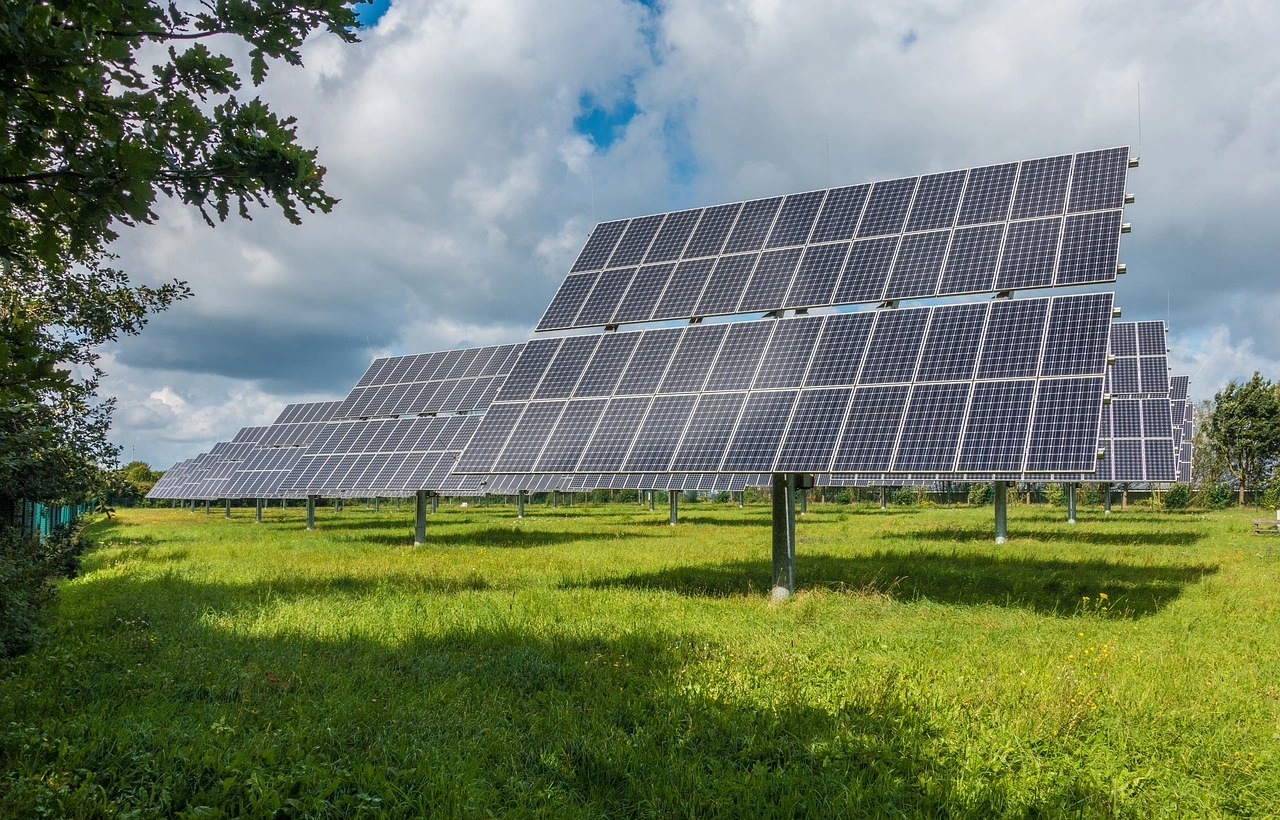Solar energy is becoming a potent and sustainable option as the globe struggles to cope with the negative environmental effects of fossil fuels. A clean, plentiful, and renewable energy source, solar energy may lessen our carbon footprint and fight climate change. We shall examine the strength, advantages, and drawbacks of solar energy in this blog.
Describe solar energy.
- Overview of solar energy: Today we will provide a fundamental grasp of the concepts underlying this renewable energy source by defining solar energy and describing how it functions.
- This part will go into further detail on how solar energy is created, including how solar panels function and how they transform sunlight into useful power. You may also check out Project Management & Consultancy.
- Various solar energy system types: This section will discuss the many solar energy system types that are available, including grid-tied, off-grid, and hybrid systems, and explain their individual advantages and disadvantages.
The Advantages of Solar Power
This section will describe the several reasons that solar energy is a more ecologically friendly energy source than conventional energy sources, including less emissions of greenhouse gases, resource conservation, and little influence on animals.
Solar energy’s financial advantages are covered in this section, including reduced energy costs, the development of solar sector jobs, and higher property prices.
The social advantages of solar energy will be discussed in this part, including enhanced public health, greater energy autonomy and security, and access to power in rural regions.
The Prospects for Solar Power
- The development of solar energy globally will be examined in this part, along with the nations and areas that are leading the way and the elements that are propelling the industry’s growth.
- The fast expansion of the solar sector will be covered in this part, along with technological developments, cost reductions, and the advent of novel business models.
- The potential of solar energy to satisfy future energy needs: This part will look at the potential of solar energy to satisfy future energy needs, as well as the obstacles that must be addressed.
Solar Energy: How to Start Using It
The next section will present a checklist of things to take into account while installing solar panels, including site, orientation, and financing possibilities:
- Advice on optimising the effectiveness of solar power systems: Here we will offer advice on increasing the effectiveness of your solar power system, including how to keep your panels clean, monitor your energy use, and use energy storage options.
- Informational sources about solar energy: For people who want to learn more about solar energy, this section will offer a list of useful publications, websites, and organisations.You may also visit solluz site for more information.
Conventional versus solar energy
- Comparing solar energy to other sources of energy: This section will contrast solar energy with other energy sources, including coal, oil, and natural gas, and look at their advantages and disadvantages.
- Environmental impact comparison:Comparing the environmental effects of solar and conventional energy sources, this part will look at greenhouse gas emissions, pollution, and habitat damage.
- Economic comparison: The cost of manufacturing, the generation of jobs, and government subsidies for solar energy and conventional energy sources will all be compared in this section.
- Future outlook: This section will offer an assessment of solar energy’s prospects relative to those of conventional energy sources, including forecasts of market trends, technological developments, and governmental initiatives.
Why should we move to solar energy?
The need for energy is increasing along with the global population. Regrettably, fossil fuels, which are non-renewable and have negative effects on the environment, make up the majority of the energy we use today.
With a number of advantages that make it an appealing choice for the future, solar energy has recently gained popularity as a possible substitute for fossil fuels.
These are some arguments in favour of switching to solar energy:
- Source of Renewable Energy It is possible to use solar energy endlessly without diminishing natural resources since it is a renewable energy source. As opposed to fossil fuels, which have a limited supply and will ultimately exhaust, this. We will be able to use solar energy as long as the sun is in existence.
- Pure Energy Solar energy is green technology since it doesn’t create any greenhouse gases or other pollutants. We can lessen the effects of climate change and our carbon footprint by utilising solar energy. We can move away from using fossil fuels and towards a more environmentally friendly energy source by using solar energy.
- Cost-effective Solar energy is a cost-effective choice for both household and business use since its price has been falling sharply over the years. Solar panels are becoming more efficient and inexpensive because to technological advancements, making them more affordable for a wider spectrum of users.
- Independence from energy By utilising solar energy, you can increase our energy independence and decrease our dependency on imported fossil fuels such as oil. We can generate our personal energy and lessen our reliance on centralised power systems with the help of solar energy.
- Creating Jobs The manufacture, deployment, and upkeep of solar panels have all witnessed tremendous development in recent years, opening up new career possibilities. We can improve the economy and generate new employment by switching to solar energy.
- Permanent Investment Making the switch to solar energy is an investment that will pay off in the long run. Solar panels will continue to be an expense and ecological energy source for many years to come because of its extended lifespan and low maintenance requirements.
In summary, solar energy is a practical replacement for fossil fuels that provides a number of advantages, including clean energy, cost-effectiveness, alternative energy, the creation of jobs, and long-term investment. We can lessen our impact on the natural world and switch to a more environmentally friendly energy source by utilising solar energy.




